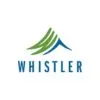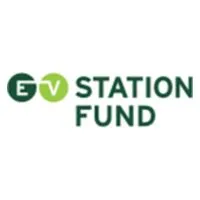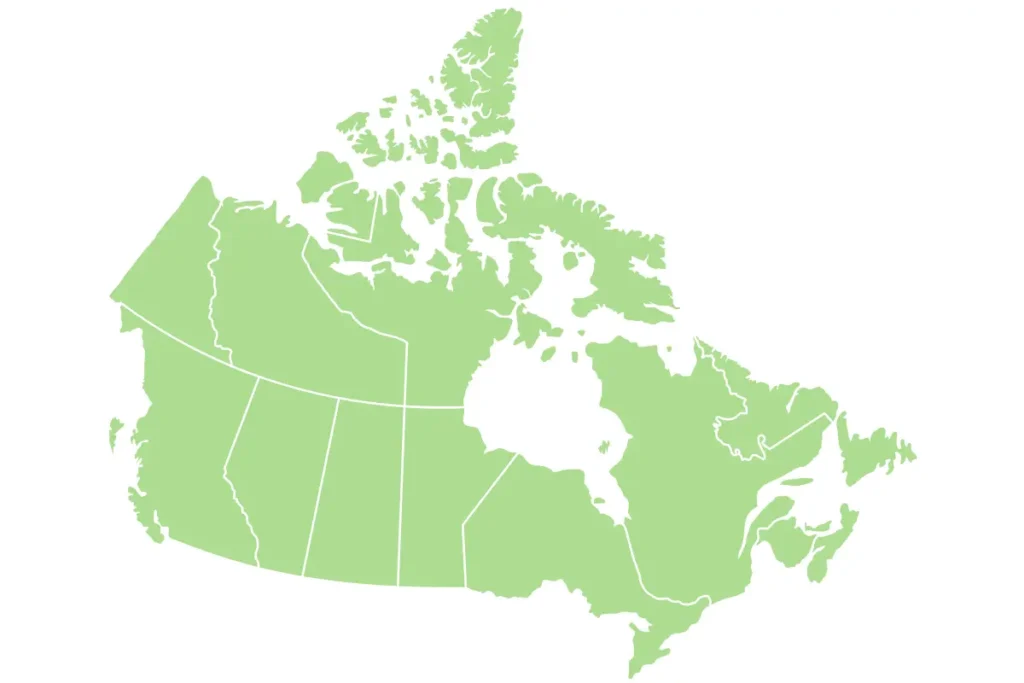
Search By Provinces
Alberta:
Home EV charging station rebates in Alberta
Currently, there are no grants available for the purchase and installation of a home charging station in Alberta. However, the Government of Canada is providing a discount to consumers who buy or lease eligible zero-emission vehicles (ZEV).
British Colombia:
MOTEN EVFC is already qualified to receive rebate in the province of British Columbia
The province of British Columbia (B.C.) has made a provincial rebate available to help with the up-front cost of an electric vehicle, which can be combined with other federal rebates for a total of more than $9 000 in savings with the purchase of an electric vehicle. If you are retiring an older gas vehicle, through BC SCRAP-IT, you may also be eligible for an additional rebate on a new or used vehicle.
Learn more about British Columbia’s rebates, which you can receive upon purchasing an EV here.
Find more information about the Government of Canada’s zero-emission vehicle rebates here.
Moreover, as one of Canada’s most prominent provinces in electrifying transportation, the Government of B.C. has maintained the rebate you can get for EV chargers in 2024.
1) BC Hydro:
Go Electric rebates for home & workplace EV charging
The Government of B.C. has developed a provincial strategy known as the CleanBC plan, and is working with BC Hydro and FortisBC to offer provincial rebates for the purchase and installation of electric vehicle (EV) chargers.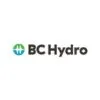
The rebates offered by the BC Hydro | Go Electric program vary depending on the type of property:
- Single family homes, including duplexes and townhouses with private garages or dedicated parking
- A rebate of up to 50% of the purchase and installation costs of an eligible Level 2 EV charger, to a maximum of $350. BC Hydro is offering an additional discount of $250 to customers with single-family homes who install an eligible smart EV charger such as the MOTEN EVFC
- Apartment and condo buildings
- EV Ready rebates: You can apply for these rebates together to streamline the EV-related upgrades to your building, or you could apply for them one at a time as your project progresses.
- A rebate of up to $3 000 for the creation of an EV Ready plan – a professional strategy for your building to make at least one parking space per residential unit EV Ready.
- A rebate of up to $600 per parking stall, to a maximum of $120,000 to install the electrical infrastructure in order to implement your EV Ready plan.
- A rebate of up to $1,400 per charger, to a maximum of $14,000, is available to purchase and install Level 2 networked EV chargers at your building, in order to implement your EV Ready plan.
- Standalone EV charger rebate
- A rebate of up to $2,000 per charger to a maximum of $14,000, to purchase and install Level 2 networked EV chargers at your building’s residential parking spaces.
Learn more about the EV charging rebates for apartment and condo buildings and apply here.
- A rebate of up to $2,000 per charger to a maximum of $14,000, to purchase and install Level 2 networked EV chargers at your building’s residential parking spaces.
- EV Ready rebates: You can apply for these rebates together to streamline the EV-related upgrades to your building, or you could apply for them one at a time as your project progresses.
- Workplaces: Organizations and businesses can submit separate applications for different locations, up to a maximum of four.
- A rebate of up to $2 000 per charger is available, to a maximum of $14 000, to purchase and install eligible Level 2 networked EV chargers for employee use.
For this rebate, organizations will need to receive a pre-approval from BC Hydro. To learn more about this EV charging rebate, visit : BC Hydro – EV charger rebates.
- A rebate of up to $2 000 per charger is available, to a maximum of $14 000, to purchase and install eligible Level 2 networked EV chargers for employee use.
- Indigenous community offers: Indigenous communities in B.C. are eligible for a rebate of up to 75% of an eligible level 2 EV charger purchase and installation costs, up to these maximum amounts:
- Single-family homes: A rebate of up to $750
- Apartment and condo buildings: A rebate of up to $4 500 per EV charger
- Workplaces: A rebate of up to $4 000 per EV charger
To be eligible for the program, home EV charging stations (level 2) must be:
- Ordered, purchased and installed and have been subject to a request within 90 days of charger installation.
- Purchased (not rented)
- Approved for sale and use in Canada and certified cUL, ULC, cETL,CSA or cQPS (such as Bosch’s home charging stations like the EVDuty, the FLO or Sun Country Highway.
- Equipped with a standard SAE J1772 connector (the only exception to the requirement is the Tesla wall connector)
- New, unused or refurbished
- Wall-mounted or pole installation at the electrical service address provided in the grant application
See the full list of eligible home charging stations
For more information about the CleanBC – Go Electric Strategy, visit the Government of British Columbia’s website.
2) FortisBC :
Go Electric rebates for home & workplace EV charging
To help you get ready for lower carbon transportation options such as electric vehicles (EVs), FortisBC is offering rebates to BC residents for purchasing and installing an EV charging station at home, at multi-unit residential buildings and workplaces. You must be a residential FortisBC electricity or municipal electricity customer of Grand Forks, Penticton, Summerland or Nelson Hydro.
The program offers EV rebates for the following properties:
- Single-family detached homes; mobile homes on a permanent foundation; or side-by-side duplexes, row homes or townhouses with individual electricity meters and garages or dedicated parking for the residents of each unit
- A rebate of up to 50% of the purchase and installation costs of an eligible Level 2 EV charger, to a maximum of $350.
- A rebate of up to 50% of the purchase and installation costs of an eligible Level 2 EV charger, to a maximum of $350.
- Multi-unit residential buildings and workplaces constructed before August 31, 2021 (i.e. new construction buildings are not eligible)
- A rebate of up to 75% of eligible purchase and installation costs,* up to $5 000 per station, to a maximum of $25 000 per application.
- For a limited time, the City of Kelowna is offering an additional supplement of $2 000 for eligible electric vehicle charging station installations in multi-unit residential buildings, up to a maximum of $6 000 per application. The Kelowna EV charging rebates are administered by FortisBC.
To be eligible for the program, home EV charging stations (level 2) must be:
- purchased, not leased
- approved for sale and use in Canada and certified cUL, ULC, cETL,CSA or CQPs (such as Bosch’s home charging stations like MOTEN EVFC
- equipped with a standard SAE J1772 connector (the only exception to the requirement is the Tesla wall connector)
- can be hardwired or wall mounted with a 240V outlet
- must be networked and connected via standard internet protocol to a central system using either open communication protocols (such as OCPP, OpenADR, or other) or a proprietary system
- installed by a licensed electrical contractor
- must have an oversized conduit installed to allow for future growth (i.e. to be capable of supplying service to at least six Level 2 charging stations at 40A each, or the total number of parking stalls, whichever comes first)
See the full list of eligible home charging stations
Within 90 days of your equipment installation, apply online on the FortisBC portal for your rebate

3) The CleanBC
Go Electric Rebates – Plug In BC
The CleanBC Go Electric Specialty Use Vehicle Incentive Program is one of a suite of programs offered under the Province of BC’s CleanBC Go Electric Program. Funded through the Ministry of Energy, Mines and Low Carbon Innovation and administered by the Fraser Basin Council Society, the CleanBC Go Electric Speciality Use Vehicle Program is for specialty-use vehicles such as cargo e-bikes, zero-emission motorcycles, utility vehicles, low speed vehicles, on-road medium and heavy-duty vehicles, airport and speciality port vehicles.
To qualify for the CleanBC Go Electric Program, you must have a valid B.C. business licence, a non-profit organization or a public entity.
The program offers rebates for the following vehicle categories:
- Zero-emission motorcycles
- Low-speed vehicles
- Cargo e-bikes
- On-road medium and heavy duty vehicles
- Airport and speciality port vehicles
- Utility vehicles
To view eligible vehicles and available rebates, visit this link: eligible vehicles
Visit Plug in BC’s website.
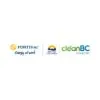
Home EV charging station rebates in the Regional District of Nanaimo, British Columbia
Available amount: up to $150
The Regional District of Nanaimo has teamed up with the Province of British Columbia and BC Hydro to provide residents a greater incentive. Eligible residents who purchase and install an approved residential Level 2 EV home charging station could receive a rebate up to $150. This top-up requires a separate application and the payment is delivered separately.
All submissions will be processed through BC Hydro. To learn more visit: B.C.’s EV charger rebate program.
Visit the Regional of Nanaimo’s website.

Home EV charging station rebates in Saanich, British Columbia
Rebates available for single family homes: up to $350
Rebates available for apartments/condos: up to $1 400 per charger
Rebates available for workplaces: up to $2 000
The district of Saanich teamed up with the province of British Columbia and BC Hydro to offer its residents a better offer. Residents who buy and install an approved level 2 home charging station could receive a rebate of up to $350. Residents who live in apartments or condos can receive a rebate of up to $1 400 per charger. Furthermore, for workplaces the district offers up to $2 000 per charger.
Visit the City of Saanich Website here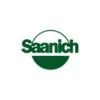
Home EV charging station rebates in the District of Squamish, British Columbia
Rebates available for single family homes: up to $350
Rebates available for apartments/condos: up to $1 000 per charger
If you reside in the District of Squamish, British Columbia, you can combine the provincial rebate for the purchase of a single-family home charging station with an additional rebate of $150 for residential charging stations for single-family homes offered by the District of Squamish.
The same principle applies for apartments and condos. It is possible to combine the provincial rebate for multi-unit residential buildings with an additional rebate of up to $1 000 offered by the District of Squamish.

Home EV charging station rebates in the Kamloops, British Columbia
Rebates available for single family homes: up to $350
Rebates available for apartments/condos: up to $1 000 per charger
If you reside in the city of Kamloops, British Columbia, you can combine the provincial rebate for the purchase of a single-family home charging station with an additional rebate of $150 for residential charging stations for single-family homes offered by the City of Kamloops.
The same principle applies for apartments and condos. It is possible to combine the provincial rebate for multi-unit residential buildings with an additional rebate of up to $1 000 offered by the City of Kamloops.
Note that there is no separate application process to receive the additional rebates. Simply submit your application to the British Columbia rebate program. If your application is approved and the address of the house/apartment/condo where the charging station will be installed is located in the city of Kamloops, the value of the discount will be automatically added to the amount of the provincial rebate.

Home EV charging station rebates in Vancouver North, British Columbia
Available amount for apartments/condos: up to $1 000
If you reside in the city of Vancouver North, British Columbia, you can combine the provincial rebate for multi-unit residential buildings with an additional rebate of up to $1 000 offered by the city.
Note that there is no separate application process to receive the additional discounts. Simply submit your application to the British Columbia rebate program. If your application is approved and the address of the house/apartment/condo where the charging station will be installed is located in the city of Vancouver North, the value of the discount will be automatically added to the amount of the provincial rebate.

Home EV charging station rebates in Whistler, British Columbia
Available amount for single family homes: up to $350
Available amount for apartments/condos: up to $1 000 per charger
Available amount for apartments/condos: up to $1 000 per charger
If you live in the Resort Municipality of Whistler (RMOW), British Columbia, you can combine the provincial home EV charger rebate program for single-family homes with a top-up of up to $150.
You can also receive a top-up with the provincial EV charger rebate program for multi-unit residential buildings including apartments and condos, with a top-up of up to $1 000.
Finally, RMOW also offers EV charger rebate top-ups of up to $1 000 for workplaces.
There is no separate application to receive the EV charger rebate top-ups. Simply submit your application for B.C.’s EV charger rebate program. If approved, and if the home or workplace you’re installing the charger at is located in the Resort Municipality of Whistler (RMOW), the eligible value will be automatically added to your base rebate amount.
Visit the Resort Municipality of Whistler (RMOW)’s website
Manitoba
Home EV charging station rebates in Manitoba
Although there are currently no provincial home EV charging stations rebates in Manitoba, Level 2 chargers are eligible for financing under the Home Energy Efficiency Loan.
1) Home Energy Efficiency Loan – Manitoba Hydro
The Energy Efficient Home Loan offers a convenient and affordable financing option if you want to make energy-efficient improvements to your home. The amount of your monthly payment will be added to your energy bill. No down payment is required.
The maximum amount eligible for financing is $ 3,000 per EV charger.
To be eligible for this loan, you must:
- Manitoba Hydro must approve your application before any work is started or any materials are purchased.
- You must be the owner of the home in which energy improvements are made.
- You must have an active Manitoba Hydro account and be approved for credit from Manitoba Hydro.
- The building must be your primary residence or the primary residence of your tenant.
- Mobile homes on permanent foundations with a permanent water supply are eligible. For geothermal and solar photovoltaic systems, you must own the land where the mobile home is located.
- Indigenous customers living in Band-owned homes are eligible for financing with a Band Council Resolution.
- The home must be detached or semi-detached.
- Upgrades must be made to the recommended levels.
How to apply
An authorized Program supplier (contractor or retailer) will work with you to determine if your project is eligible for funding and help you complete the loan application.
For more information, please visit the Manitoba Hydro website.
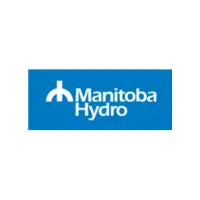
New Brunswick
Home EV charging station rebates in New Brunswick
1) Plug-in-NB
Rebate programs for charging stations for businesses in New Brunswick
The funding for the program is provided by Natural Resources Canada’s Zero Emission Vehicle Program (ZEV). The objective of the program is to increase the availability of charging stations where Canadians live.
Please note that funding is fully allocated at this time. If you would like more information or you are interested in participating if additional funding is available, you can contact [email protected]
There are several eligibility criteria and requirements to participate in the program.
For more information, visit the Énergie NB Power website.
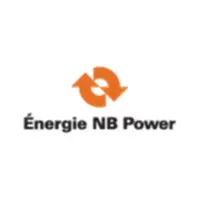
Newfoundland & Labrador
Home EV charging station rebates in Newfoundland & Labrador
Although there are no provincial rebates for the purchase and installation of an EV home charging station in Newfoundland and Labrador, the province of Newfoundland and Labrador now has an EV Rebate Program. You can save $ 2,500 on the purchase or lease of a 100% all-electric vehicle and $ 1,500 for a plug-in hybrid. That means you can save up to $ 7,500 when you combine the provincial rebate with current federal incentives for the purchase of a new EV.
Visit the Newfoundland and Labrador’s EV rebates program to learn more.
North West Territories
Home EV charging station rebates in the Northwest Territories:
The Arctic Energy Alliance (AEA) provides rebates to reduce the cost of purchasing and using an electric vehicle (EV) and charging infrastructure in the Northwest Territories (NWT).
1) Electric vehicles & charging infrastructure rebates – Arctic Energy Alliance (AEA)
Switching to an electric vehicle can help residents of NWT reduce the amount of greenhouse gas emissions released to the atmosphere from gasoline-powered vehicles. AEA’s rebates are available to communities connected to NWT’s hydro-electric grid, such as Behchoko, Dettah, Enterprise, Fort Resolution, Fort Smith, Hay River, Kátł’odeeche, N’dilo, and Yellowknife.
The program has two types of rebates:
Two types of rebates are available for individuals, businesses, not-for-profit organizations, as well as Community and Indigenous governments:
- Electric Vehicles
- A rebate of up to $ 7,500 for a new battery electric vehicle (BEV) or plug-in hybrid electric vehicle (PHEV).
- EV Charging Infrastructure
- A rebate of up to $500 for a Level 2 charging station for home use (220 or 240 volts).
How does it work?
Who can apply for a rebate?
- Individuals
- Businesses
- Not-for-profit organizations
- Community and Indigenous governments
How to apply for AEA’s rebates?
- Purchase your vehicle, Level 2 charging station.
- Complete the application form below and submit it to the AEA within 3 months of purchasing your product or by March 10, 2024 (whichever is earlier), along with the following documents:
- Your sales agreement, lease agreement, or receipt, with proof of payment or financing arrangements.
- Proof of NWT registration and insurance, if applicable
- A photo of the installed charging station.
What products are eligible?
- New battery electric passenger vehicles.
- New plug-in hybrid electric passenger vehicles.
- New Level 2 electric charging stations for home use.
Application:
- Complete and submit your form to the AEA before March 10, 2024, along with the following documents:
More information on the EV rebates can be accessed on the website of Arctic Energy Alliance.
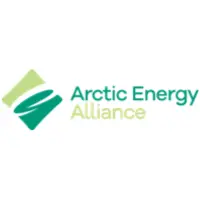
Nova Scotia
Home EV charging station rebates in Nova Scotia
The Government of Nova Scotia is increasingly raising residents’ awareness of the benefits of driving an electric vehicle and strongly encourages the adoption of electric transportation modes in its province.
1. EV Assist – Electrify Nova Scotia Rebate Program
The province of Nova Scotia has made a provincial rebate available to help with the up-front cost of an electric vehicle, which can be combined with other federal rebates for a total of more than $ 8,000 in savings with the purchase of an electric vehicle.
2. EV BOOST
EV Boost helps provide level 2 chargers to eligible organizations in the province. Thanks to funding provided by the Zero Emission Vehicle Infrastructure Program (ZEVIP) of the natural resources of Canada (RNCan), Clean Foundation contributes to supporting the deployment and installation of a maximum of 250 EV chargers.
What locations are eligible for charging stations?
- Workplaces
- Multi-unit residential buildings (MURBs)
- Public places
- On-street
- Light duty
For more details on this initiative, read the full press release here.
For general questions about the EV Boost program, please contact [email protected].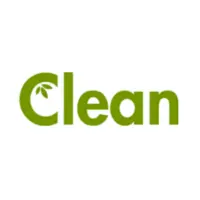
3. Efficiency Nova Scotia’s electric vehicle charging station rebates
Thanks to the Province of Nova Scotia, Efficiency NS provides rebates for electric vehicle (EV) chargers to owners of multi-unit residential buildings (MURBs).
There are two EV programs to explore:
The EV-Ready Approach
This program helps building owners plan and implement a strategy that prepares their buildings for EV charging now and in the future, where most of their building residents will require EV charging. It has two rebate components:
- The first is the EV Ready Plan rebate that helps participants develop a long–term EV charging strategy.
- The second is the EV Ready Charger rebate that supports the installation of eligible charging stations according to an EV Ready Plan.
A building that is ‘EV Ready’ has an electrical outlet installed in each resident’s parking space that provides an electrical connection point for installing a level 2 charging station in the future.
For a building to ensure it gets EV Ready in the best way possible, participants will be required to hire an approved consultant to prepare an EV Ready Plan.
The EV Ready Plan is a guide for the EV charging infrastructure. It helps ensure the charging infrastructure can adapt to meet the long-term charging needs and guides the building to achieve EV Ready over time.
Download the EV Ready Approach Program Guide
The Standalone EV Charger
- This program assists with the building’s initial stations to support early adopters or if the building has smaller, straightforward charging requirements.
- It doesn’t provide the same rebates that the EV Ready Charger does.
Rebates
EXISTING BUILDING
50% of eligible costs. Max $ 2,500 per charger/station (max $10,000 per building).
Download the Standalone EV Charger Guide
Visit the Efficiency Nova Scotia’s electric vehicle charging station rebates to learn more.
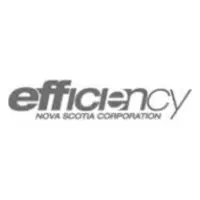
Nunavut
Incentive programs for electric and plug-in hybrid vehicles in Nunavut r
Currently, there are no grants for purchasing and installing a home charging station in Nunavut.
However, the Government of Canada is offering a discount to consumers who buy or lease eligible zero-emission vehicles (ZEV). The Canadian government considers the following vehicles as ZEVs:
- battery-electric
- plug-in hybrid electric
- Hydrogen fuel cell
The program offers two types of rebate:
- Electric battery, hydrogen fuel cell, and plug-in hybrid cars with long-range (battery capacity of 15kWh or more) are eligible for a rebate of up to $ 5,000.
- Plug-in hybrids with a shorter range (battery capacity of less than 15kWh) are eligible for rebate of up to $ 2,500 rebate.
Ontario
Home EV charging station rebates in Ontario
Even though the Ontario government decided in 2018 to end its provincial home EV charging station rebate program, there are still many ways to save when you transition to a plug-in electric or hybrid car, whether as an owner, tenant, or retailer.
The Zero-Emission Vehicle Program (iZEV)
Provided by the federal government
In the new iZEV program, the Government of Canada is offering discounts of up to $ 5 000 for the purchase or the purchase or rental of eligible zero-emission vehicles (ZEV). The discount is applied directly to the price of the sticker, at the dealership, at the time of purchase or rental.
A ZEV is a vehicle that does not produce exhaust emissions. The ZEV can be equipped with an internal combustion engine but must be capable of operating without it. The Canadian government considers the following vehicles as ZEVs:
- battery-electric
- plug-in hybrid electric
- hydrogen fuel cell
Home EV charging station rebates in Toronto, Ontario
1) Home Energy Loan Program (HELP)
There are no grants for residential charging stations in Toronto. However, there is the Home Energy Loan Program (HELP), a funding tool offered by the City of Toronto to help residents improve the energy efficiency of their homes and save money.
Through the Home Energy Loan Program (HELP), Toronto homeowners can get a low-interest loan of up to $125,000 to cover the cost of home energy improvements.
The City of Toronto provides the funding necessary to implement these improvements, and homeowners then reimburse the City through payments taken from their property tax bills. Improvements include home EV charging stations (level 2).
You may be eligible for the Home Energy Loan Program (HELP) if:
- you own a detached, semi-detached, or row house;
- all of the property owners on title consent to participate in the program;
- your property tax and utility payments to the City are in good standing; and
- you obtain written consent from your mortgage lender, if applicable*.
For more information on the Home Energy Loan Program, visit the City of Toronto’s website.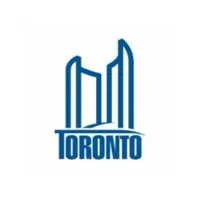
2) The EV Station Fund
At the Station Fund, they prioritize EV charging stations in areas with the fewest chargers per capita, in the Greater Toronto + Hamilton Area.
You can install up to 20 charging units at one or several locations in the Greater Toronto + Hamilton area and receive rebates up to 50% of the installation cost:
$ 5,000 per Level 2 charge port.
$15,000 per DC Fast Charge port.
$ 50,000 per DC Fast+ Charge port.
$ 75,000 for each DC Fast+ Charge port of 100 kW or more.
The Atmospheric Fund is a not-for-profit organization that invests in low-carbon solutions that benefit the Greater Toronto and Hamilton Area and help scale them up for broad implementation through financing, grants, and programs.
Visit the EV Station Fund to learn more.
Price Edward Island
Home EV charging station rebates in Prince Edward Island:
The Government of Prince Edward Island (PEI) is providing Islanders who take advantage of the PEI Universal EV Incentive (both BEV and PHEV) with a $750 charging discount. This discount can be applied towards the purchase and installation of a level 2 charger, or towards charging costs for those who are unable to install a charger.
Furthermore, the province of PEI has made a provincial rebate available to help with the up-front cost of an electric vehicle, which can be combined with other federal rebates for a total of more than $ 10,750 in savings with the purchase of an electric vehicle.
More information on the incentives is available from the Government of Prince Edward.
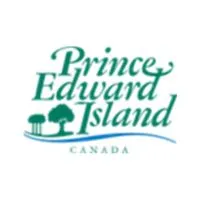
Zero-emission vehicles help fight climate change
Residents of Prince Edward Island can also count on the ZEV grant program offered by the Canadian government. This program offers significant incentives to Canadians who purchase or lease zero-emission vehicles (ZEVs).The Canadian government considers the following vehicles as ZEVs:
- battery-electric
- plug-in hybrid electric
- hydrogen fuel cell
Quebec:
MOTEN EVFC is already qualified to receive the rebate in the province of Newfoundland & Labrador
Home EV charging station rebates in Québec:
In 2012, the Government of Quebec implemented the Roulez vert program to accelerate and help the electrification process. In addition to robust provincial home EV charging station rebates, residents of Quebec can receive additional discounts upon the purchase of an EV. What’s more, businesses have access to interesting workplace charging programs.
There are also several municipalities that offer incentives that can be staked with the provincial options, so be sure to check the list of cities and towns below to see if you find yours!
1) The Roulez vert Program – Government of Quebec
There are several ways in which individuals, businesses and municipalities can benefit from the EV rebates provided by the Government of Quebec. Not-for-profit organizations, building owners and real-estate companies also have good options to get started with their acquisition of electric vehicles and charging stations. What’s more, Quebec has announced that they will prolong the program until March 31, 2027.
The program offers EV rebates for the following properties:
- Home EV charging station rebate – The Roulez vert Program
- A rebate of $600for the purchase and installation of a Level 2 EV home charging station. Proof of installation is required in order to receive the government rebate.
- To be eligible for the program, home EV charging stations (level 2) must be:
- New
- Level 2 AC qualified
- Approved by an accredited certification body such as certified cUL, cETL or CSA Wallbox, as well as others such as the EVDuty, the FLOor Sun Country Highway.
- Multi-unit building EV charging station rebate:
The total amount of financial assistance shall not exceed $5,000 per wireless charging station or per connector.
- Acquisition and installation: The financial assistance granted for the acquisition and installation of charging stations for multi-unit residential buildings will be the lesser of the following amounts.
- 50% of eligible expenses
OR
- 50% of eligible expenses
- Acquisition and installation: The financial assistance granted for the acquisition and installation of charging stations for multi-unit residential buildings will be the lesser of the following amounts.
- $5,000 per wireless charging station
OR - $5,000 per connector for charging stations with one or more connectors that allow the equivalent number of electric vehicles to be recharged simultaneously.
- Lease and installation of an EV charging station:If the charging station is leased, the applicant must provide a lease showing that he or she meets the other eligibility requirements of the program, notably the requirement to keep the charging station in operation for at least three years. The financial assistance for the lease and installation of charging stations for a multi-unit residential building is:
- $500 per wireless EV charging station
OR - $500 per connector for EV charging stations with one or more connectorsthat allow the equivalent number of electric vehicles to be recharged simultaneously
OR - 50% of eligible expensesrelated to the installation of an EV charging station
- $500 per wireless EV charging station
Key references for Multi-residential electric vehicle charging:
Murbly
This organization offers tools and strategies for residential electric vehicle charging installations in condos and multi-unit residential buildings.
RVE – Electric Vehicle Recharge
Organization specializing in multi-residential electric vehicle charging. Their services are available to individuals, tenants, owners, and developers alike.
Rebates for charging stations at work:
For the purchase and installation of a charger:
50% of expenses are admissible up to a maximum of:
- $5,000per wireless charging station
- $5,000per connector (for a charging station with one or more connectors)
For the rental and installation of a charging station:
- $500per wireless charging station
OR - $500per connector
AND - 50% of eligible expenses related to the installation of a charging station
In all cases, the financial assistance cannot exceed $5,000 per wireless charging station or $5,000 per connector.
Home EV charging station rebate in Berthierville, Quebec
Available amount: $100
On March 2, 2020, the City of Berthierville adopted a subsidy by-law of $100 for the purchase and installation of home charging stations for electric cars for its citizens who own a residential building.
To be eligible, the building must be located on the territory of Berthierville and be residential. In addition, the home charging station must have been installed after March 2, 2020, be supplied with an electrical voltage of 208 to 240 volts and be installed by an electrical contractor holding a license from the Régie du bâtiment du Québec (RBQ).
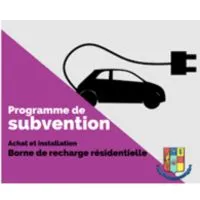
Home EV charging station rebate in Boucherville, Quebec
Available amount: $150
The City of Boucherville offers a rebate of up to $150 to reimburse the cost of purchasing and installing the charging station by a master electrician.
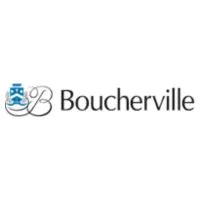
Home EV charging station rebate in Canton de Shefford, Quebec
Available amount: up to $250
Canton de Shefford has implemented a program to encourage its citizens to switch to an electric vehicle. This program provides a rebate of 25% of the costs of acquiring and installing a home EV charging station up to a maximum of $ 250.
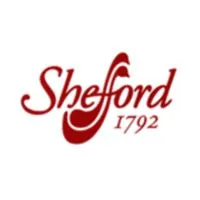
Home EV charging station rebate in Chambly, Quebec
Available amount: up to $250
The City of Chambly has implemented a program to encourage its citizens to switch to an electric vehicle. This program provides a rebate of 25% of the costs of acquiring and installing a home EV charging station up to a maximum of $ 250.
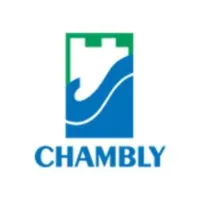
Home EV charging station rebate in Coaticook, Quebec
Available amount: $250
The City of Coaticook offers a rebate of up to $250 to reimburse the cost of purchasing and installing the charging station by a master electrician.

Home EV charging station rebate in Dollard-Des-Ormeaux, Quebec
Available amount: $150
Dollar-Des-Ormeaux offers a rebate of up to $150 to reimburse the cost of purchasing and installing the charging station by a master electrician.
- Application form for the home EV charging station rebate in Dollar-Des-Ormeaux
- City of Dollard-des-Ormeaux Website
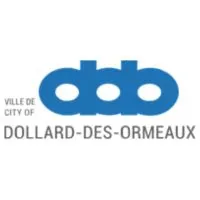
Home EV charging station rebate in Dorval, Québec
Available amount: $500
The City of Dorval has a program that offers a 50% rebate, up to a maximum of $500, to cover the costs of acquiring and installing a home charging station (level 2) for electric cars. This program has been in effect since January 1, 2019 for a single reimbursement per residence.
In order to benefit from the Dorval grant, you must provide the invoice as proof of purchase of the home charging station as well as the invoice of an electrician as proof of installation.
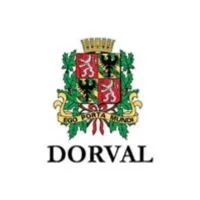
Home EV charging station rebate in East Angus, Quebec
Available amount: $100
It is possible for residents of East Angus to claim a grant of $100 for the purchase of a home charging station (level 2) to charge their electric car or plug-in hybrid vehicle. A permit request must be made to the building and environment inspector before installing the charging station. The East Angus grant has been available since April 1, 2019.
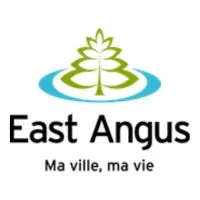
Home EV charging station rebate in Granby, Quebec
Available amount: $250
With the objective of preserving a healthy quality of the environment as well as reducing its ecological footprint, the city of Granby has implemented the City’s Green Action Plan seeking to promote the electrification of transportation. This plan offers a discount equivalent to 25% of the purchase and installation of a home EV charging station up to a maximum of $250.
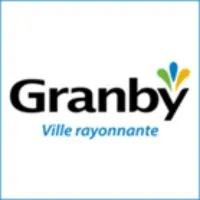
Home EV charging station rebate in Joliette, Quebec
Available amount: $250
The City of Joliette has implemented a program to encourage its citizens to switch to an electric vehicle. This program provides a rebate of 25% of the costs of acquiring and installing a home EV charging station up to a maximum of $250. For businesses the rebate is 25% of the costs of acquiring and installing an EV charging station up to a maximum of $500.
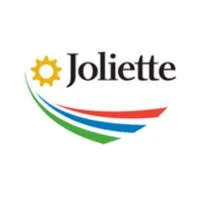
Home EV charging station rebate in Kingsey Falls, Quebec
Available amount: $250
The City of Kingsey Falls offers a rebate of up to $250 to reimburse the cost of purchasing and installing the charging station by a master electrician.
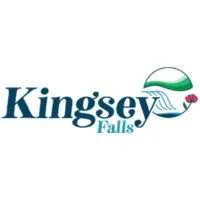
Home EV charging station rebate in L’Assomption, Quebec
Available amount for condo owners & homeowners: up to $150
Available amount for multi-residential building owners: up to $450
Eligible vehicle owners living in the Municipality of L’Assomption can receive a rebate on new, non-portable home EV chargers. Only one EV charging station per household is admissible for this financial aid, which would result in a rebate of $150. For condo units, it’s possible to be entitled to a rebate of $100 per charging station upon written confirmation from their syndicate of co-ownership. There is a limit of 2 EV chargers per property with 6 homes (2x$150), resulting in a rebate of $300, and a limit of 3 EV chargers per property of 7 homes or more (3x$150) for a rebate of $450.

Home EV charging station rebate in Lavaltrie, Quebec
Available amount: up to $150
A rebate of $150 per residence is granted for the installation of a home EV charging station in the city of Lavaltrie. Only one charging station per private dwelling can be subsidized and a maximum of five charging stations per multi-unit.
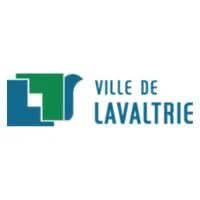
Home EV charging station rebate in Mont-Joli, Quebec
Available amount: up to $200
The City of Mont-Joli offers a grant to the owner of a residential building (house or condo) covering 50% of the cost of the purchase of the charging station, or up to $200.
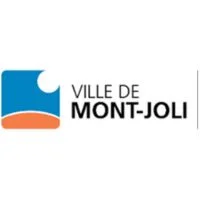
Home EV charging station rebate in Nicolet, Quebec
Available amount for homes: $500
Available amount for commercial: $500
In 2008, the City of Nicolet adopted an environmental policy, one of its objectives being to encourage energy savings in transport and buildings, in order to reduce the emission of greenhouse gasses.
With this in mind, the City encourages businesses and organizations to install charging stations for electric cars to make them available to the homeowners and commercial building owners.
For both applications, residents and business owners on the territory of Nicolet can receive $500 for a new Level 2 charging station.
- Application form for the home EV charging station rebate in Nicolet
- Application form for a commercial charging station rebate in Nicolet
- City of Nicolet website
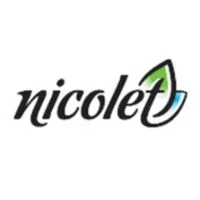
Home EV charging station rebate in Nominingue, Quebec
Available amount: $100
The City of Nominingue offers a rebate of up to $100 to reimburse the cost of purchasing and installing the charging station by a master electrician.

Home EV charging station rebate in Stoke, Quebec
Available amount: $100
The City of Stoke offers a rebate of up to $100 toward the EV charging station’s purchase cost as well as installation by a master electrician.

Home EV charging station rebate in Terrebonne, Quebec
Available amount: $200
The City of Terrebonne offers a rebate of up to $200 toward the EV charging station’s purchase cost as well as installation by a master electrician.
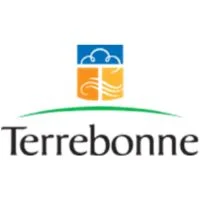
Home EV charging station rebate in Vaudreuil Dorion, Quebec
Available amount: $150
To encourage the purchase of electric vehicles, Vaudreuil is offering a refund of $150 for the purchase and installation of a home charging station. The charging station must have been purchased from a Quebec-based retailer, and the required documents must be submitted BEFORE December 31 of the reference year in which the purchase and installation were completed, in order to be eligible.

Home EV charging station rebate in Waterloo, Quebec
Available amount: $100
The City of Waterloo is offering a $100 grant to citizens who wish to purchase an electric charging station upon presentation of an invoice until the budget is completely used up.
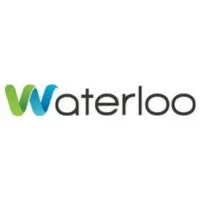
Home EV charging station rebate in Windsor, Quebec
Available amount: $150
The City of Windsor is offering a $150 grant to citizens who wish to purchase an electric charging station upon presentation of an invoice until the budget is completely used up.

Saskatchewan
Home EV charging station rebates in Saskatchewan
Currently, there is no subsidy for the purchase and installation of a home charging station in Saskatchewan. However, as part of the new iZEV program, the Government of Canada is offering discounts of up to $ 5,000 for the purchase or for the purchase or rental of eligible zero-emission vehicles (ZEV). The discount is applied directly to the price of the sticker at the dealership at the time of purchase or rental.
For example, the Government of Canada considers the following vehicles to be ZEVs:
- battery-electric
- plug-in hybrid electric
- hydrogen fuel cell
For more information, visit the Government of Canada’s website.

Yukon:
Home EV charging station rebates in Yukon:
This year, the Government of Yukon is offering EV rebates in the aim to reduce the carbon footprint within its territory. Residents have access to rebates that apply to EV charging stations and zero-emission vehicles, including recreational vehicles.
1) Good Energy rebates – Government of Yukon
Apply for a rebate to install a Level 2 electric vehicle charger.
The EV rebates are available for the following properties:
- Single detached homes; duplexes; triplexes; and mobile homes
- A rebate for 50% of the purchase and installation costs up to a maximum of $750 for one Level 2 EV charging station at a personal residence.
- Multi-unit residential buildings; commercial buildings; or apartments.
- A rebate for 75% of the purchase and installation costs up to a maximum of $7,500 per installed Level 2 charger.
- For municipal and First Nations government buildings
- Rebate covering 90% of the cost of purchasing and installing a Level 2 charging station, to a maximum of $9,000 per station.
To be eligible for the program
Your level 2 charging stations must be:
- WiFi enabled.
- 240 volt plug with output power between 3 kilowatt and 20 kilowatt such as Bosch’s home charging stations like the EVDuty, the FLO or Sun Country Highway.
More information on the rebates is available from the Government of Yukon.
Canada: Federal
About ZEVIP
Zero Emission Vehicle Infrastructure Program funding for owners and operators of charging and refueling infrastructure
Since 2016, Canada has invested over $1 billion to make EVs more affordable and chargers more accessible for Canadians. These investments are supporting the establishment of a coast-to-coast network of chargers in local areas where Canadians live, work, and play, while federal rebates of up to $5,000 are helping more Canadians make the switch to an EV.
Budget 2019 and the 2020 Fall Economic Statement committed $280 million to ZEVIP over 5 years to support the deployment of 33,500 electric vehicle chargers and 10 hydrogen refuelling stations in public places, on-street, in multi-unit residential buildings and at workplaces, as well as strategic infrastructure projects for urban delivery and fleet applications.
Budget 2022 further recapitalized ZEVIP with an additional $400 million, and extended the program to March 31, 2027, complemented by $500 million that Canada’s Infrastructure Bank will invest in large-scale ZEV charging and refuelling infrastructure that is revenue generating and in the public interest. The Government of Canada’s ZEV charging and refuelling infrastructure targets are currently 84,500 chargers and 45 hydrogen stations to be deployed by 2029.
Introduction
Launched in 2019, the Zero Emission Vehicle Infrastructure Program (ZEVIP) is a $680 million program that addresses a key barrier to the adoption of zero-emission vehicles (ZEV)—the lack of charging and refuelling stations in Canada— by increasing the availability of localized charging and hydrogen refuelling opportunities where Canadians live, work, and play.
This Request for Proposals (RFP) is currently closed for applications. The next annual RFP is planned for Spring 2024*.
*RFP timelines are subject to change and the ZEVIP application guide supersedes information on this webpage.
Eligibility criteria
Eligible applicants
To be considered for funding under ZEVIP, applicants must be legal entities validly incorporated or registered in Canada or abroad, including not-for-profit and for-profit organizations such as:
- electricity or gas utilities
- companies
- industry associations
- research associations
- standards organizations
- Indigenous businesses and community groups
- academic institutions
- provincial, territorial, regional, or municipal governments or their departments or agencies where applicable
The following are not eligible for funding support under ZEVIP:
- Individuals or any part of federal public administration, including departments, Crown corporations and agencies
- Softwood lumber companies and those that are vertically integrated with them
Note: Projects must be submitted by the organization (the Proponent) that will own the infrastructure and that will be incurring the bulk of the expenditures. Proof of eligible expenditures for reimbursement needs to be under the name of the Proponent.
Eligible projects
To be considered for funding, projects must meet the following requirements:
- Increase localized charging or hydrogen refuelling opportunities in public places, on-street, in multi-unit residential buildings, at workplaces, or for vehicle fleets.
- The work performed must be in compliance with all applicable local codes (for example, building and electrical) and bylaws (for example, zoning and parking).
- For EV charging infrastructure projects, your proposal must include:
- A minimum of one (1) charger of 200 kW and above; or
- A minimum of two (2) fast chargers of 50 kW and above; or
- A minimum of twenty (20) chargers of all charging levels.
- For Level 2 chargers, each connector can count as a unit towards the minimum of 20 chargers if each connector can charge a vehicle at the same time.
- Fast chargers with multiple connectors and capable of charging multiple vehicles simultaneously and independently at a given output level may be eligible to receive additional funding. The funding amount of multi-connector chargers will be based on the maximum simultaneous output level of operating connectors.
- 25% or more of the connector types installed at the same project site must be universal charging connectors (J1772, J1772 Combo) of the same category (i.e. Level 2 or fast charger). Other proprietary connector types may represent the remaining 75% of all charging connectors installed.
- For hydrogen refuelling projects, the station must be capable of dispensing hydrogen at 350 bar minimum for medium- and heavy-duty vehicles and 700 bar minimum for light-duty vehicles.
Eligible expenditures
Eligible expenditures for an approved project under ZEVIP must be directly related to, and necessary for, the implementation and conduct of the project and will include:
- salary and benefits
- professional services (for example, scientific, technical, management; contracting; engineering; construction; installation, testing and commissioning of equipment; training; marketing; data collection; logistics; printing; distribution)
- reasonable travel costs, including transportation, meals, and accommodation
- capital expenses, including informatics and other equipment or infrastructure
- rental fees or leasing costs
- license fees and permits
- costs associated with environmental assessments
- GST, PST, and HST net of any tax rebate to which the recipient is entitled
- overhead expenses directly related to the project will be considered to a maximum of 15% of eligible expenditures
Ineligible expenditures for reimbursement under ZEVIP will include:
- in-kind
- land costs
- legal costs
- ongoing operating costs (e.g., electricity consumption, operation, maintenance, networking fees, subscription fees)
- costs incurred outside the Eligible Expenditure Period, including those for preparing this application
Ongoing operating costs (e.g., electricity consumption, operation, maintenance, networking fees, subscription fees), and costs incurred before a project is approved by NRCan, including those costs for preparing this application, are not attributable to the project (out of scope).
Eligible zero-emission vehicle infrastructure technologies
In order to be considered for funding, projects must be:
- located in Canada
- a permanent installation (hard-wired)
- using new and purchased equipment (not leased)
- for a new installation or expansion of an existing installation (not for the replacement of an existing installation)
- certified for use in Canada (e.g., CSA, UL, Interlink) and commercially available
To be considered for funding, electric vehicle chargers must:
- include one or more of the following charging connector types:
- SAE J1772 standard (Level 2 – 208/240 V)
- SAE J1772 Combo (for fast chargers)
- Other proprietary connector types may represent a maximum of 75% of all charging connectors installed at the same project site, with the balance corresponding to one of those above
- be connected (ability to communicate to other chargers servers, or cloud-using software).
To be considered for funding, the hydrogen refuelling station must be capable of dispensing hydrogen at 350 bar minimum for medium- and heavy-duty vehicles and 700 bar minimum for light-duty vehicles.
Funding activities
Maximum funding amount
NRCan’s contribution through ZEVIP will be limited to a maximum of 10 million dollars ($10,000,000) per project.
Financial support for projects is based on the total amount of funds available for ZEVIP and within the ZEVIP timeframe. Funding is subject to an appropriation by Parliament for the fiscal year in which payments are to be made.
ZEVIP will pay up to 50% of Total Project Costs, up to maximum amounts as shown in the following table:
How to apply
Important: Applications can only be submitted during an active RFP.
- Applicants must review and ensure they meet the eligibility criteria.
- Email [email protected] to receive a copy of the application form.
- Return a completed application form to the email address mentioned above along with the following:
- the Word and Excel documents
- supporting documentation
- an attestation dated and signed by a duly authorized officer
When an application has been submitted, a notification will be sent by ZEVIP acknowledging its receipt. This may take up to 5 business days.
Application timelines and deadlines
- Request for Proposals Initiated – RFP Launch date
- Request for Proposals submission deadline – RFP closing date
- Communicating Funding Decisions – 100 calendar days
- Negotiation period and signature of Contribution Agreements (CA) – 3 months
- Project completion date for electric vehicle chargers – 30 months
- Project completion date for hydrogen refuelling stations – 36 months
Service standards
Our goal is to achieve our service standards at least 80% of the time under normal circumstances:
- acknowledge receipt of application and/or proposal within 5 business days.
- provide funding decisions within 100 calendar days.
- send you a draft Contribution Agreement for review within 30 business days of issuing the Letter of Conditional Approval.
- send you a payment within 30 business days of receipt of a duly completed and documented payment claim.
Contact us
For additional information, email [email protected].
Please note: All projects subject to funding through a competitive process cannot be discussed during the RFP process.
Not sure which infrastructure programs apply to your project?
Use this tool to determine what types of infrastructure funding are available for your project or organization.

